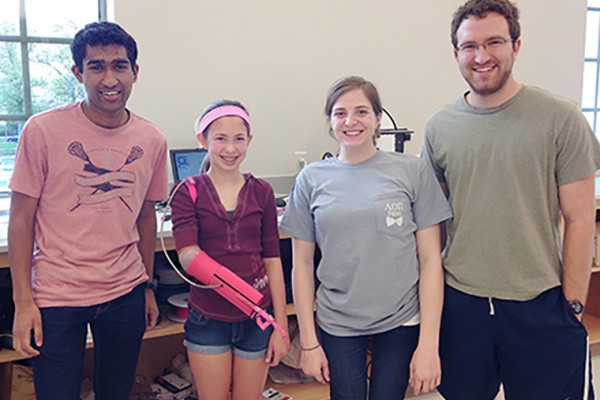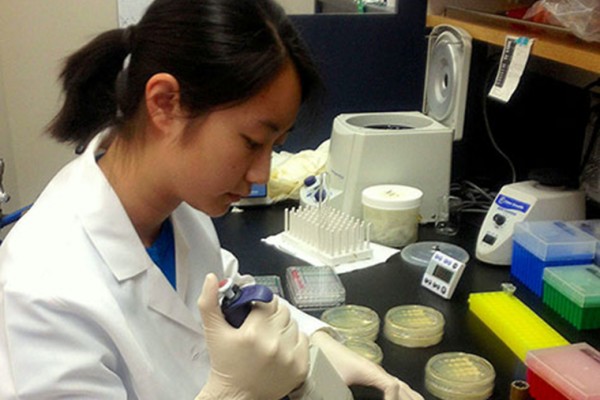Study helps explain why MS is more common in women
A newly identified difference between female and male brains with multiple sclerosis (MS) may help explain why so many more women than men get the disease, researchers at Washington University School of Medicine in St. Louis report.
$32 million NIH grant funds study of multipurpose infection fighter
A multi-institutional campaign to harness a newly recognized cellular defense against infection is being led by researchers at the School of Medicine. A $32 million grant from the National Institutes of Health is funding the collaborative, which could lead to drugs with unprecedented versatility in fighting different infections. Washington University’s Herbert W. Virgin IV, MD, PhD, is the principal investigator.
Mouse study offers new clues to cognitive decline
New research suggests that certain types of brain cells may be “picky eaters,” seeming to prefer one specific energy source
over others. The finding has implications for understanding the cognitive decline seen in aging and degenerative diseases such as Alzheimer’s and multiple sclerosis.
Those magnificent architects and their flying machines
From Daedalus to da Vinci, from Kitty Hawk to Cape Canaveral, the dream of flight has powered some of the world’s most ambitious feats of design and engineering. On April 28, freshman architecture students from the Sam Fox School launched their own aeronautical experiments from the top of Art Hill in Forest Park.
‘30% Club’ could work here with better defined objectives
A group of a two dozen corporate leaders, including
Warren Buffet, is trying to influence American companies to increase the
number of women in positions of senior leadership. The effort, called the 30% Club,
is an expansion of an effort in Great Britain to increase female corporate
board representation there to 30 percent by the end of 2015. But can it work in the United States? Maybe, with more defined objectives, says Olin Business School’s Michelle Duguid, PhD, an expert on women in the workplace.
WUSTL undergraduate sells Farmplicity, startup that began as class project
An undergraduate success story: Jolijt Tamanaha spent her last weeks of junior year at Washington University in St. Louis making a deal to sell a startup she co-founded called Farmplicity — an online marketplace that matches restaurants with local farmers — founded in a course through Olin Business School called The Hatchery.
A&S teaching assistants recognized for excellence
Richard J. Smith, PhD, dean of the Graduate School of Arts & Sciences, presented the school’s Dean’s Award for Teaching Excellence to 17 teaching assistants for exemplary performance. Stacy Davis, a fifth-year PhD candidate in Spanish, was among those recognized during an April 24 ceremony.
Brookings Executive Education launches new fellowship
The Brookings Institution and Washington University in
St. Louis have announced a new fellowship program aimed at boosting
senior-level government employee success. The new Brookings Executive Education Fellowship will help agencies and individuals
develop the thinking and behaviors needed for fostering skilled
government leadership, while doing so at a significantly reduced cost.
WUSTL students ‘print’ pink prosthetic arm for teen girl
Three biomedical engineering seniors at WUSTL are gaining national attention for the robotic prosthetic arm they developed for a 13-year-old St. Louis girl. Built on a 3-D printer, the arm is cheap, functional — and pink.
Huang wins this year’s Spector Prize
The Spector Prize, first awarded in 1974, recognizes academic excellence and outstanding undergraduate achievement in research. Students are nominated by their research mentors for outstanding research that has made substantial contributions to a field. This year, the prize has been awarded to Deborah Huang, who plans to
graduate this month with a major in biochemistry and molecular biology
and a minor in public health.
View More Stories


